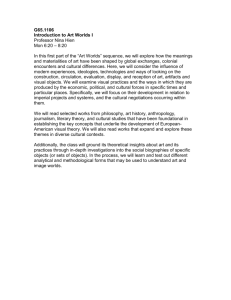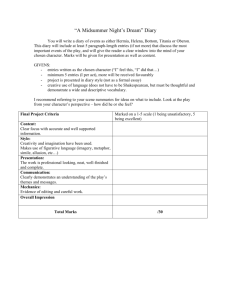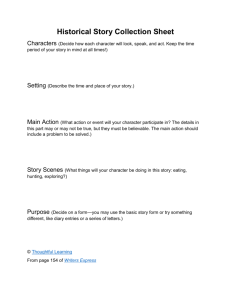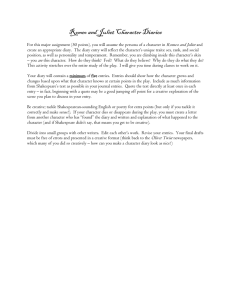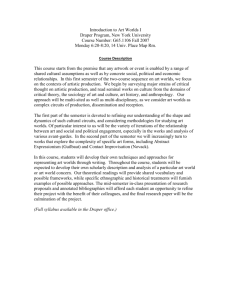The Worlds of North and South
advertisement
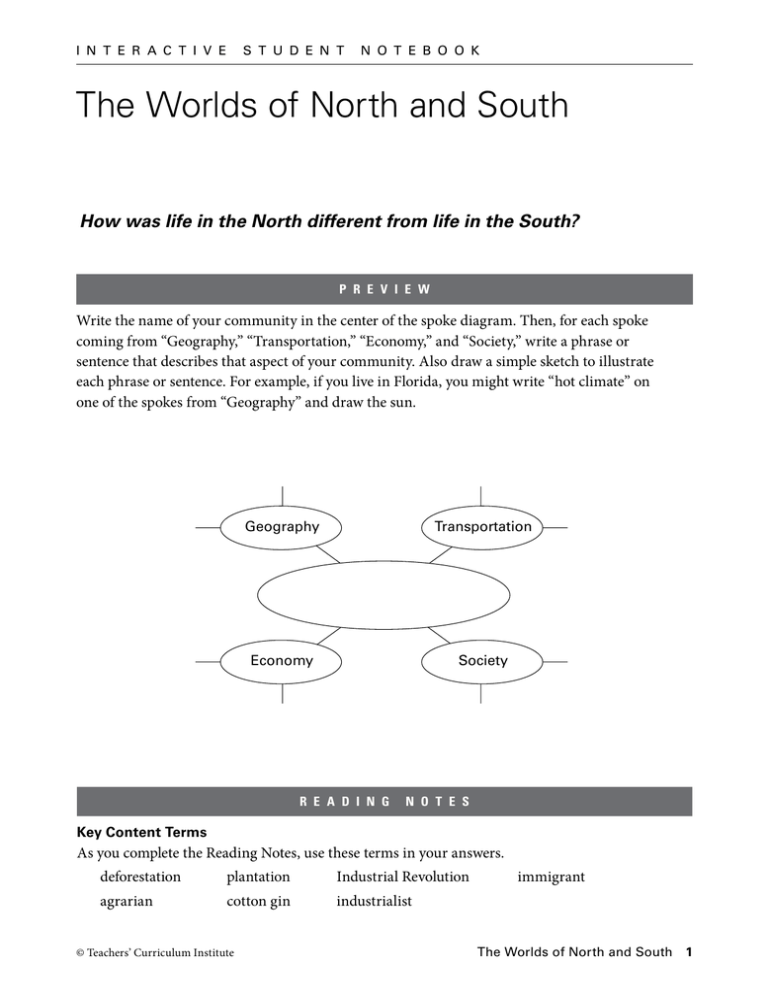
i n t e r a c t i v e s t u d e n t n o t e b o o k The Worlds of North and South How was life in the North different from life in the South? P R E V I E W Write the name of your community in the center of the spoke diagram. Then, for each spoke coming from “Geography,” “Transportation,” “Economy,” and “Society,” write a phrase or sentence that describes that aspect of your community. Also draw a simple sketch to illustrate each phrase or sentence. For example, if you live in Florida, you might write “hot climate” on one of the spokes from “Geography” and draw the sun. Geography Transportation Economy Society R E A D I N G N O T E S Key Content Terms As you complete the Reading Notes, use these terms in your answers. deforestation plantation Industrial Revolution agrarian cotton gin industrialist © Teachers’ Curriculum Institute immigrant The Worlds of North and South 1 i n t e r a c t i v e s t u d e n t n o t e b o o k Sections 2 to 9 On the following pages, you will complete two spoke diagrams, one on the North and one on the South. After you read each section, turn to the appropriate spoke diagram. Draw at least four spokes from the aspect of life you read about: “Geography,” “Transportation,” “Economy,” or “Society.” On each spoke, write a phrase or sentence describing one feature of that aspect of life. In the oval, make a sketch to illustrate that aspect of life. The World of the North Geography (Section 2) Economy (Section 5) © Teachers’ Curriculum Institute The Worlds of North and South 2 i n t e r a c t i v e s t u d e n t n o t e b o o k The World of the North Society (Section 9) Transportation (Section 6) © Teachers’ Curriculum Institute The Worlds of North and South 3 i n t e r a c t i v e s t u d e n t n o t e b o o k The World of the South Geography (Section 3) Economy (Section 4) © Teachers’ Curriculum Institute The Worlds of North and South 4 i n t e r a c t i v e s t u d e n t n o t e b o o k The World of the South Society (Section 8) Transportation (Section 7) © Teachers’ Curriculum Institute The Worlds of North and South 5 i n t e r a c t i v e s t u d e n t n o t e b o o k P R O C E S S I N G In the space below or on another sheet of paper, make a drawing of the North and a drawing of the South to show how life was different in the two places. In each drawing, include at least one key feature of the area’s geography, economy, transportation, and society. Label and describe each key feature on your drawings. © Teachers’ Curriculum Institute The Worlds of North and South 6 i n t e r a c t i v e s t u d e n t n o t e b o o k R E A D I N G F U R T H E R Preparing to Write: Recording Details Primary source materials tell us a great deal about life during the Industrial Revolution. In Lowell, Massachusetts, for example, both mill workers and visitors described their experiences. They wrote letters, diaries, books, and newspaper articles. The details they recorded help us better understand that time and place. Describe life in Lowell in the mid-1800s. What would you have seen in the factories in Lowell? Describe the people you would have seen in the factories. Outside of the mills, what were workers’ lives like? © Teachers’ Curriculum Institute The Worlds of North and South 7 i n t e r a c t i v e s t u d e n t n o t e b o o k Writing Diary Entries Suppose you were a mill worker in Lowell in the mid-1800s. You are keeping a diary of your experiences. Write one entry to describe your feelings and experiences soon after you arrived in Lowell. Write a second entry to describe your feelings and experiences a year later. Include factual details in your entries. Use this rubric to evaluate your diary entries. Make changes in your entries if you need to. Score Description 3 The diary entries clearly describe feelings and experiences. They include factual details. There are no spelling or grammar errors. 2 The diary entries describe feelings and experiences. They include details. There are few spelling or grammar errors. 1 The diary entries do not describe feelings and experiences. They do not include details. There are many spelling or grammar errors. © Teachers’ Curriculum Institute The Worlds of North and South 8
